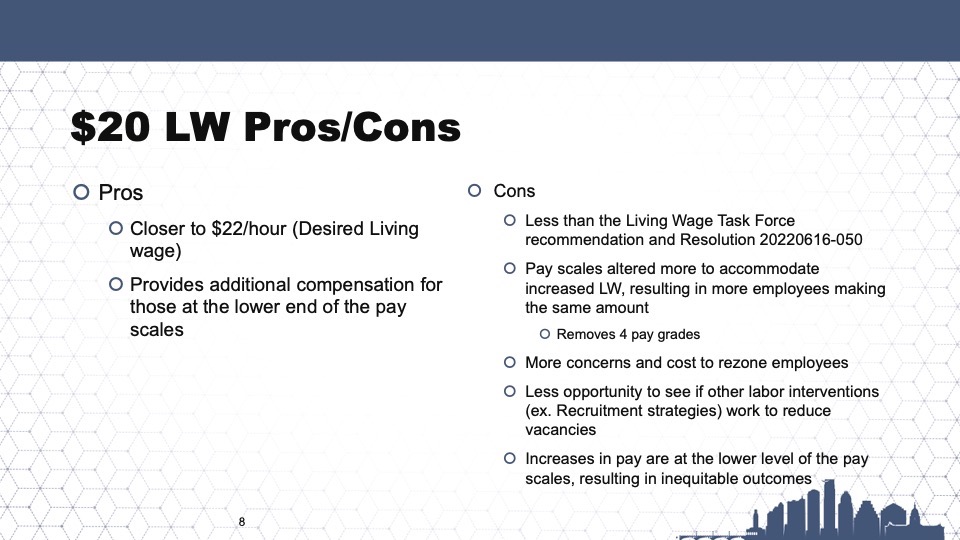Amidst a worsening cost of living crisis, Austin City Council voted last week to raise the minimum wage for city workers from $15 to $20 per hour. That’s no thanks to the city human resource managers who pushed for a lower increase over concerns that such an increase would create too much equality among city workers.
By Joshua F.
The Austin City Council passed a budget on August 18 that included a substantial raise for lower paid Austin city employees. The coalition behind it (including DSA) pushed for a city budget that reflects the needs of the people in Austin. The original intent included a floor of $22 per hour but the $20 we won is still a substantial raise for those who need it most since the current minimum is $15 per hour.
This was no thanks to the city human resource managers whose presentation pushed for a much lower minimum. The department put forth a “$20 LW Pros/Cons” (LW means Living Wage) document that did manage to mention that it helped “those at the lower end of the pay scales” but focused far more on what they see as negatives.
Among these were “more employees making the same amount.” Is it the city government’s responsibility to reinforce inequality? Almost everybody in Austin is trying to get by in a city with absurdly high housing costs. Everybody except the city manager, Spencer Cronk, who is paid $350,000 per year, and who also urged the lowest of the proposals on the table. The city government should work to help equalize the city, not give more wealth to those with the most.
Along the same lines, HR said that raising the lowest paid workers results “in inequitable outcomes.” How is raising the bottom inequitable when it makes the system more equal? Of course Cronk and the other grossly overpaid city management would prefer across the board percentages. These primarily benefit those with the highest pay. A 3% raise for Cronk adds over $10,000 to his annual pay. For those at the bottom of the scale, it’s more like $1,000. It is unfortunate that even for $350,000 per year, Austin can’t find a manager who understands that giving money to the rich is inequitable.

